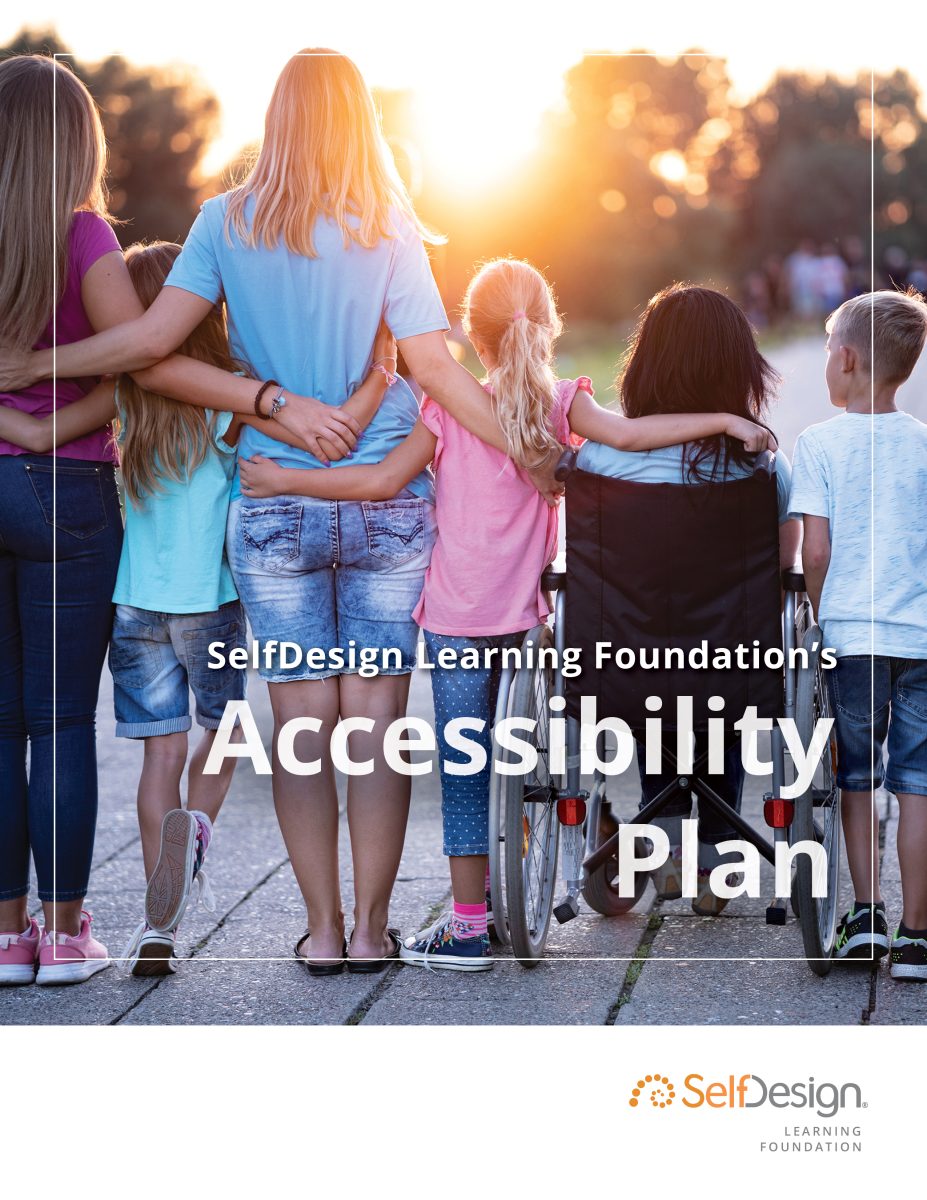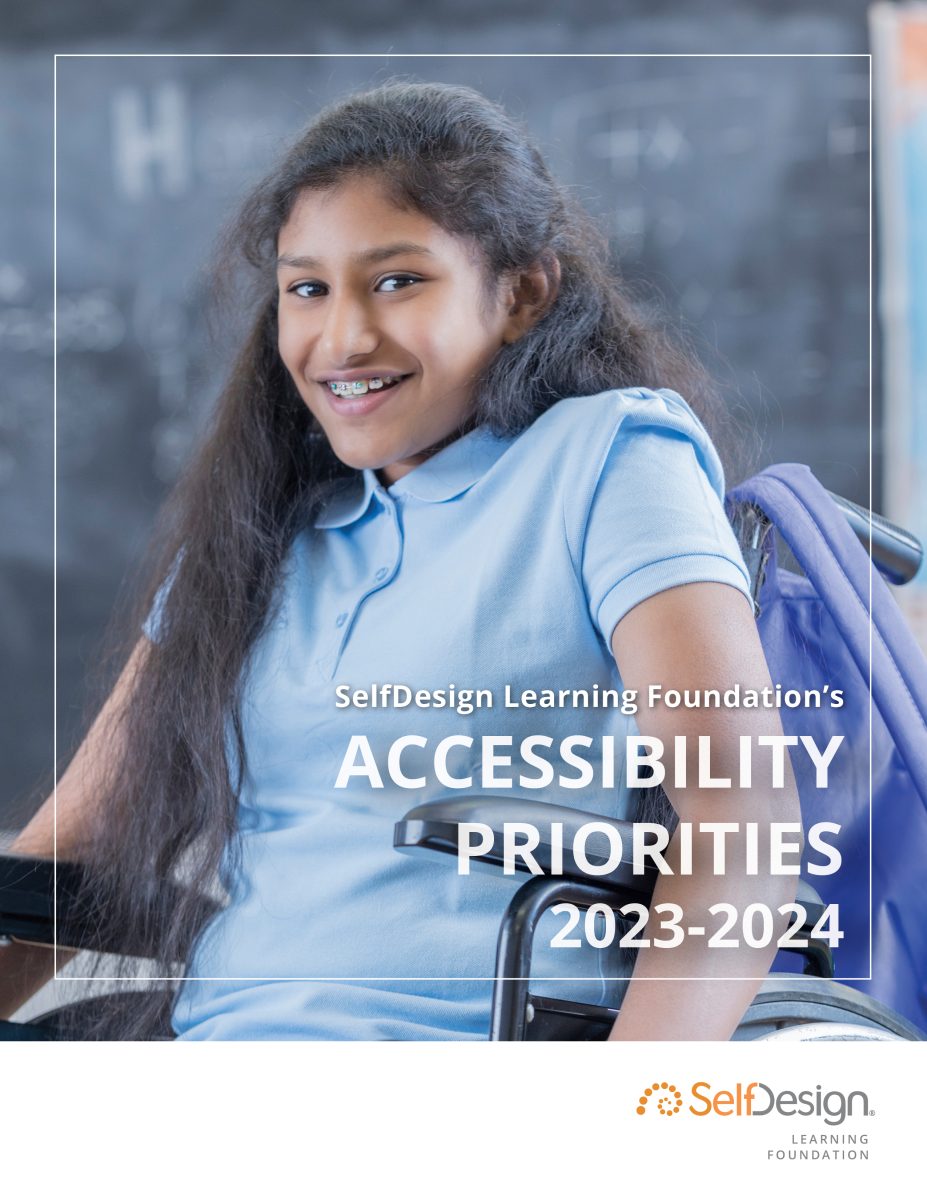Accessibility
For SelfDesign, being accessible means creating learning and working environments that allow everyone to fully participate.
As we work to create a more accessible community we have developed an Accessibility Plan for SelfDesign. This plan is a living blueprint that identifies needs, priorities, and actions for the next three years.
What we are doing
This year, we are reviewing our policies, practices, applications, and communications with a lens that will help us identify barriers to people who use them. We are also seeking input from community members that will provide us with further information on how best to increase access and reduce barriers.
We will:
- form an Accessibility Committee to help guide our efforts,
- update the plan based on feedback, learnings and research, and
- raise awareness of accessibility and provide training to our community.
At SelfDesign, we know improving access not only helps people with disabilities but also helps improve our entire community. We are committed to continuous improvement for all areas of the organization so that we are able to better support the needs of all of those who belong to the SelfDesign Learning Foundation community.
Give feedback on accessibility
Help us understand the barriers people face when accessing SelfDesign.
Select 1 of the 3 ways below to provide your feedback.
Make sure to include:
- What you were trying to access
- Where the barrier happened and what the barrier was
- Any recommendations you might have
Ways to provide feedback
1. Online Form
Submit your feedback through our online form.
You can attach files to help explain the barrier you faced in the form, like:
- A video
- A voice recording
- Photos
2. Email
Email your feedback to accessibility@selfdesign.org
3. Mail
Write to:
SelfDesign
PO Box 74560 RPO Kitsilano
Vancouver, BC, V6K 4P4
Canada



